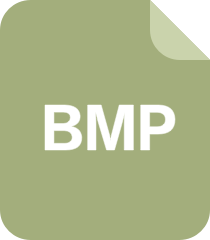Cheat_Engine_v5.4源码

Cheat Engine是一款知名的开源游戏修改工具,主要用于调试和分析游戏内存数据,帮助用户改变游戏中的数值,例如生命值、金钱等。Cheat Engine v5.4的源码为我们揭示了这款软件背后的编程技术和设计理念。 我们要理解"源码"的概念。源码是程序员用高级语言编写的程序代码,它以人类可读的形式存在,可以被编译成机器语言执行。开源则意味着该源码可供公众查看、学习和修改,促进了技术交流和社区发展。 在Cheat Engine v5.4的源码中,我们可以深入研究以下几个核心知识点: 1. **内存扫描与修改**:Cheat Engine的核心功能之一是内存扫描,它查找并修改游戏进程中的特定值。这涉及到操作系统级别的内存管理和Windows API的使用,如ReadProcessMemory和WriteProcessMemory函数。 2. **地址跟踪**:Cheat Engine能跟踪内存地址的变化,这在处理动态内存分配或受保护的游戏数据时尤其有用。这一功能可能涉及到地址偏移计算、内存挂钩(Hooking)和反反调试技术。 3. **十六进制编辑器**:源码中可能包含自定义的十六进制编辑器组件,用于查看和编辑内存块。这需要对二进制数据的理解以及用户界面设计。 4. **脚本语言支持**:Cheat Engine允许用户编写脚本来自动化修改过程。这可能涉及一种自定义的脚本语言或支持流行的脚本语言如Lua,包括解析、执行和调试脚本的机制。 5. **调试器功能**:为了定位和修改内存地址,Cheat Engine具有简单的调试器功能。这包括设置断点、单步执行、查看寄存器状态等。 6. **多线程与并发**:游戏通常在多个线程中运行,因此Cheat Engine需要处理并发问题,确保修改操作的正确性和同步性。 7. **用户界面(UI)设计**:Cheat Engine的用户界面需要直观且高效,方便用户操作。这可能涉及到Windows消息处理、控件布局和事件驱动编程。 8. **错误处理与兼容性**:为了确保在不同系统和游戏中稳定运行,Cheat Engine需要有强大的错误处理机制,并考虑兼容性问题。 通过研究Cheat Engine v5.4的源码,开发者不仅可以学习到游戏修改的技巧,还能深入理解操作系统交互、内存管理、多线程编程、脚本语言实现等多个方面的知识。对于想进入游戏开发或逆向工程领域的程序员来说,这是一个宝贵的教育资源。同时,开源的特性也鼓励社区成员贡献自己的改进,推动项目不断进步。
 Cheat_Engine_v5.4源码 (1437个子文件)
Cheat_Engine_v5.4源码 (1437个子文件)  algorithm 5KB
algorithm 5KB algorithm 5KB
algorithm 5KB algorithm 5KB
algorithm 5KB all-wcprops 32KB
all-wcprops 32KB all-wcprops 14KB
all-wcprops 14KB all-wcprops 14KB
all-wcprops 14KB all-wcprops 14KB
all-wcprops 14KB all-wcprops 13KB
all-wcprops 13KB all-wcprops 6KB
all-wcprops 6KB all-wcprops 6KB
all-wcprops 6KB all-wcprops 5KB
all-wcprops 5KB all-wcprops 4KB
all-wcprops 4KB all-wcprops 4KB
all-wcprops 4KB all-wcprops 4KB
all-wcprops 4KB all-wcprops 3KB
all-wcprops 3KB all-wcprops 3KB
all-wcprops 3KB all-wcprops 3KB
all-wcprops 3KB all-wcprops 2KB
all-wcprops 2KB all-wcprops 2KB
all-wcprops 2KB all-wcprops 2KB
all-wcprops 2KB all-wcprops 2KB
all-wcprops 2KB all-wcprops 1KB
all-wcprops 1KB all-wcprops 1KB
all-wcprops 1KB all-wcprops 1KB
all-wcprops 1KB all-wcprops 952B
all-wcprops 952B all-wcprops 899B
all-wcprops 899B all-wcprops 798B
all-wcprops 798B all-wcprops 788B
all-wcprops 788B all-wcprops 787B
all-wcprops 787B all-wcprops 704B
all-wcprops 704B all-wcprops 698B
all-wcprops 698B all-wcprops 685B
all-wcprops 685B all-wcprops 673B
all-wcprops 673B all-wcprops 654B
all-wcprops 654B all-wcprops 638B
all-wcprops 638B all-wcprops 606B
all-wcprops 606B all-wcprops 596B
all-wcprops 596B all-wcprops 534B
all-wcprops 534B all-wcprops 497B
all-wcprops 497B all-wcprops 462B
all-wcprops 462B all-wcprops 458B
all-wcprops 458B all-wcprops 234B
all-wcprops 234B all-wcprops 218B
all-wcprops 218B all-wcprops 214B
all-wcprops 214B all-wcprops 208B
all-wcprops 208B all-wcprops 196B
all-wcprops 196B all-wcprops 182B
all-wcprops 182B all-wcprops 182B
all-wcprops 182B all-wcprops 180B
all-wcprops 180B all-wcprops 101B
all-wcprops 101B all-wcprops 85B
all-wcprops 85B all-wcprops 82B
all-wcprops 82B XNAMES.AWK 297B
XNAMES.AWK 297B extract.awk 249B
extract.awk 249B compile.bat 2KB
compile.bat 2KB betacopy.bat 816B
betacopy.bat 816B cetc.bat 183B
cetc.bat 183B ce.bat 175B
ce.bat 175B bbison.bat 72B
bbison.bat 72B b.bat 57B
b.bat 57B settings.bin 5B
settings.bin 5B style3def.bmp 78KB
style3def.bmp 78KB Standalonetype3a.bmp 10KB
Standalonetype3a.bmp 10KB LOGO3.BMP 9KB
LOGO3.BMP 9KB logo2.bmp 8KB
logo2.bmp 8KB LockedString.bmp 5KB
LockedString.bmp 5KB test.bmp 4KB
test.bmp 4KB logo.bmp 4KB
logo.bmp 4KB UnLockedString.bmp 4KB
UnLockedString.bmp 4KB TextureString.bmp 3KB
TextureString.bmp 3KB image.bmp 2KB
image.bmp 2KB cheatlist.bmp 1KB
cheatlist.bmp 1KB cheat.bmp 1KB
cheat.bmp 1KB text.bmp 1KB
text.bmp 1KB process.bmp 1KB
process.bmp 1KB button.bmp 1KB
button.bmp 1KB open.bmp 726B
open.bmp 726B save.bmp 714B
save.bmp 714B pause.bmp 374B
pause.bmp 374B colors.bmp 238B
colors.bmp 238B movementtexture.bmp 190B
movementtexture.bmp 190B Locktexture.bmp 190B
Locktexture.bmp 190B targettexture.bmp 190B
targettexture.bmp 190B tlg1.bmp 162B
tlg1.bmp 162B selection.bmp 138B
selection.bmp 138B exitmarker.bmp 138B
exitmarker.bmp 138B browse.bmp 138B
browse.bmp 138B Down.bmp 118B
Down.bmp 118B Up.bmp 118B
Up.bmp 118B right.bmp 106B
right.bmp 106B black.bmp 66B
black.bmp 66B nothing.bmp 66B
nothing.bmp 66B BACK2.BMP 0B
BACK2.BMP 0B cheatengine.bpg 934B
cheatengine.bpg 934B DBKDrvr.c 61KB
DBKDrvr.c 61KB memscan.c 35KB
memscan.c 35KB DBKFunc.c 27KB
DBKFunc.c 27KB cetc.c 19KB
cetc.c 19KB tdiwrapper.c 16KB
tdiwrapper.c 16KB rootkit.c 13KB
rootkit.c 13KB- 1
- 2
- 3
- 4
- 5
- 6
- 15

 零点零一2013-09-03要的分数太多了.唉.谢谢分享.
零点零一2013-09-03要的分数太多了.唉.谢谢分享.
- 粉丝: 6
- 资源: 19
 我的内容管理
展开
我的内容管理
展开
 我的资源
快来上传第一个资源
我的资源
快来上传第一个资源
 我的收益 登录查看自己的收益
我的收益 登录查看自己的收益 我的积分
登录查看自己的积分
我的积分
登录查看自己的积分
 我的C币
登录后查看C币余额
我的C币
登录后查看C币余额
 我的收藏
我的收藏  我的下载
我的下载  下载帮助
下载帮助

 前往需求广场,查看用户热搜
前往需求广场,查看用户热搜最新资源
- 直齿轮裂纹对摩擦时变啮合刚度的影响:基于Matlab程序的研究分析,直齿轮裂纹与摩擦影响下时变啮合刚度仿真分析算法matlab实现,直齿轮裂纹,摩擦时变啮合刚度matlab程序 ,直齿轮裂纹; 啮合刚
- 3步集成DeepSeek搜索API:从RESTful调用到结果优化全流程.pdf
- 5分钟搞定DeepSeekAPI密钥申请与OpenAISDK无缝迁移指南.pdf
- 5分钟快速入门:DeepSeek私有化部署与GPU资源分配指南.pdf
- 5分钟快速上手:DeepSeekAPI调用全流程详解.pdf
- 10倍效率提升!DeepSeek多Token预测功能的代码级优化.pdf
- 10分钟掌握DeepSeekAPI调用:从注册到第一个请求的完整流程解析.pdf
- 10分钟掌握DeepSeekAPI核心调用:从密钥获取到Python、Node.js实战示例.pdf
- 13个场景化案例:用DeepSeekAPI实现代码生成与文本改写.pdf
- 10个DeepSeekAPI必知技巧:从鉴权到流式处理的开发全指南.pdf
- 128Ktokens长上下文处理:DeepSeek-R1打破行业限制的技术突破.pdf
- 64K上下文长度压测:DeepSeek-V3模型Token消耗优化全解析.pdf
- 128k超长文本处理:DeepSeekV3技术白皮书核心能力解密.pdf
- API成本直降95%!DeepSeek缓存机制与批量请求实战.pdf
- API安全攻防战:DeepSeek接口鉴权漏洞扫描与OAuth2.0加固方案.pdf
- 2025年人工智能变革元年-DeepSeek引领AI算法与应用新时代


 信息提交成功
信息提交成功